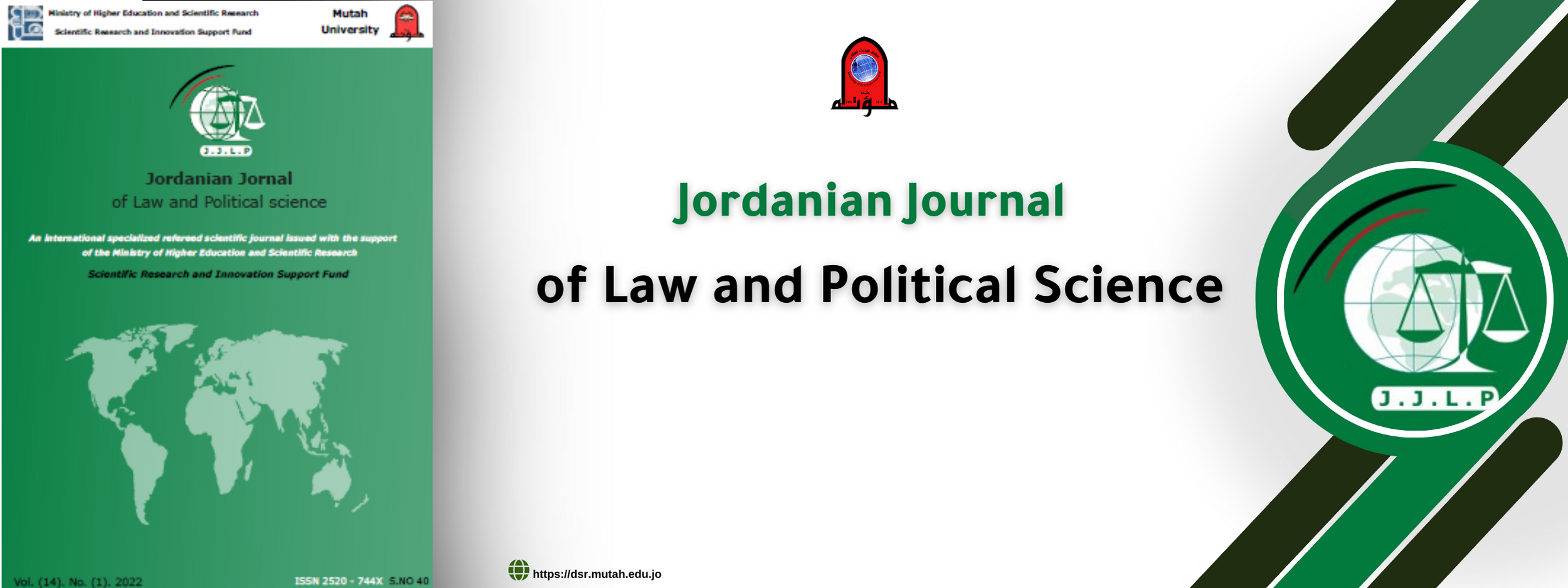Describing the Civil Judgments Based on the Presence and Absence of the Parties Under the Jordanian Law
DOI:
https://doi.org/10.35682/jjlps.v15i2.576Keywords:
Civil Judgments, Presence Parties, Absence of the Parties, Jordanian LawAbstract
The judicial system has kept up with developments to achieve justice. That includes acknowledging the idea of presence and absence. Based on such an acknowledgment, the methods used to address the absence problem before the civil judiciary has developed. The latter development is based on a basic idea. This idea is represented in the fact that whenever the lawsuit is filed, the court must settle it, even if the parties refrain from attending the trial sessions. The present study sheds light on one aspect of addressing this problematic issue. This aspect is represented in (describing the civil judgments based on the presence and absence of the parties under Jordanian law).
The meaning of (presence) under Jordanian law is based on one standard. This standard is represented in the presence of the opponent or an agent representing him. If the opponent or his agent refrained from attending a trial session, the opponent shall be deemed absent. The issues related to presence and absence have implications on the description of the judgment and the legal impacts of such a description. Therefore, the present study aims to shed light on the legal controls regulating this description and the legal implications of such a description.
This research yields several results. First, it adds that the description of the judgment shall be called "be Mathabet Al Wajahi" if the opponent did not attend any trial sessions, provided that the opponent was notified about the date of his trial session under the procedures. Second, the study adds that this description does not fit with reality. It adds that this description should be described as "Gheyabi." Third, the description of the judgment shall be called "Wajahi E'tebari" when the opponent attends a session or some sessions of the trial with refraining from attending the other sessions. He adds that this judgment ought to be described as "Be Mathabet Al Wajahi." Fourth, the study adds that administering the opponent who was trialed in a manner that's" Wajahi E'tebari" shall be obligatory if the opponent attended the session and requested attending the sessions before having the case ready to be settled. Otherwise, the opponent's request shall be rejected pursuant to the procedures. Finally, the study adds that the judgments issued in response to an appeal on the decisions issued by the Magistrates' Court and described as "Be Mathabet Al Wajahi’’shall not apply to the judgments issued by the Court of First Instance. That applies even if the latter judgments are described as "Be Mathabet Al Wajahi." It applies though the justification for appeal is existent and deemed the same in both cases.
The study offers several recommendations. First, it recommends eliminating the judgment description called "Be Mathabet Al Wajahi" and using the description called (Gheyabi) instead of it. Second, the study recommends eliminating the "Wajahi E'tabari" judgment description and using the "Be Mathabet Al Wajahi" description instead. Third, it suggests making the judgments issued in response to an appeal application to the court's first instance's judgments due to having the same justification in both cases. Fourth, it recommends enacting a text suggesting that the cases heard by the Magistrates' Court and returned due to an appeal must be heard through pleading.







